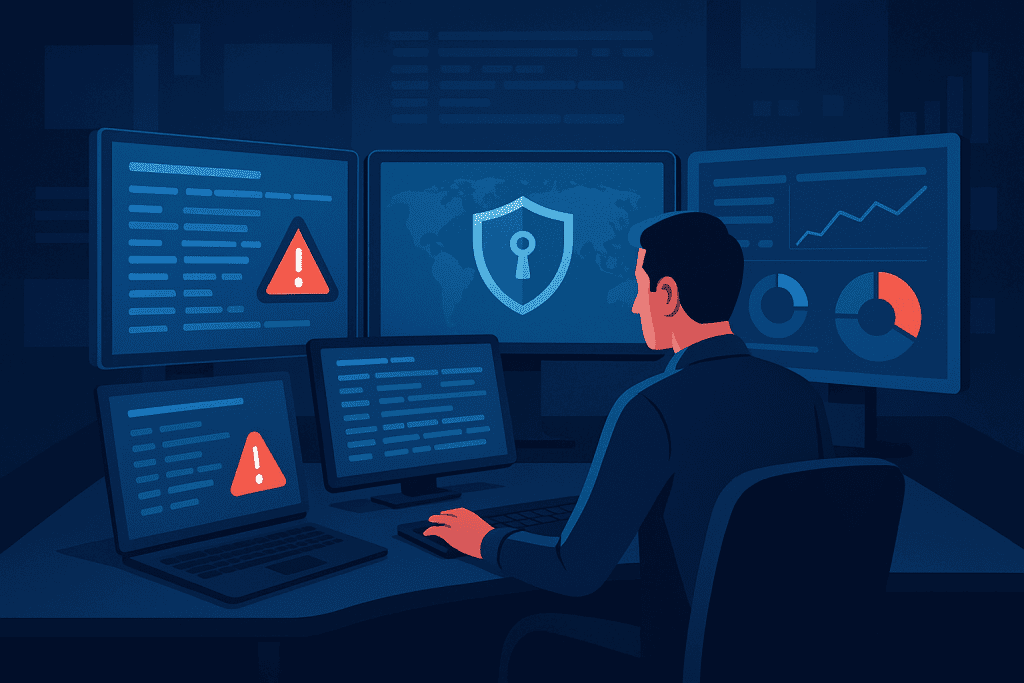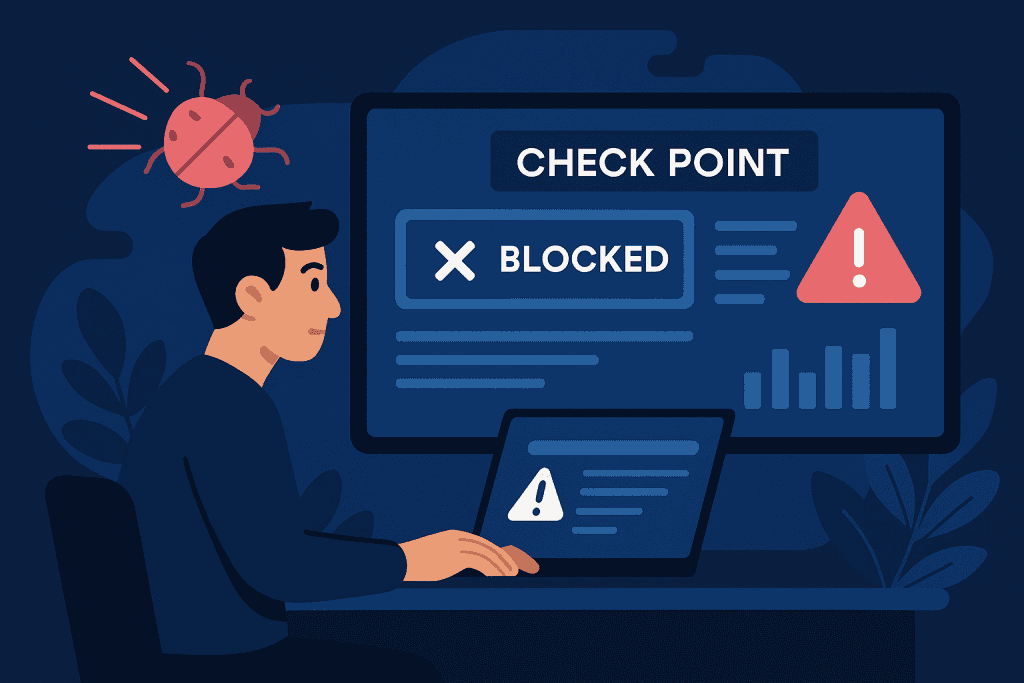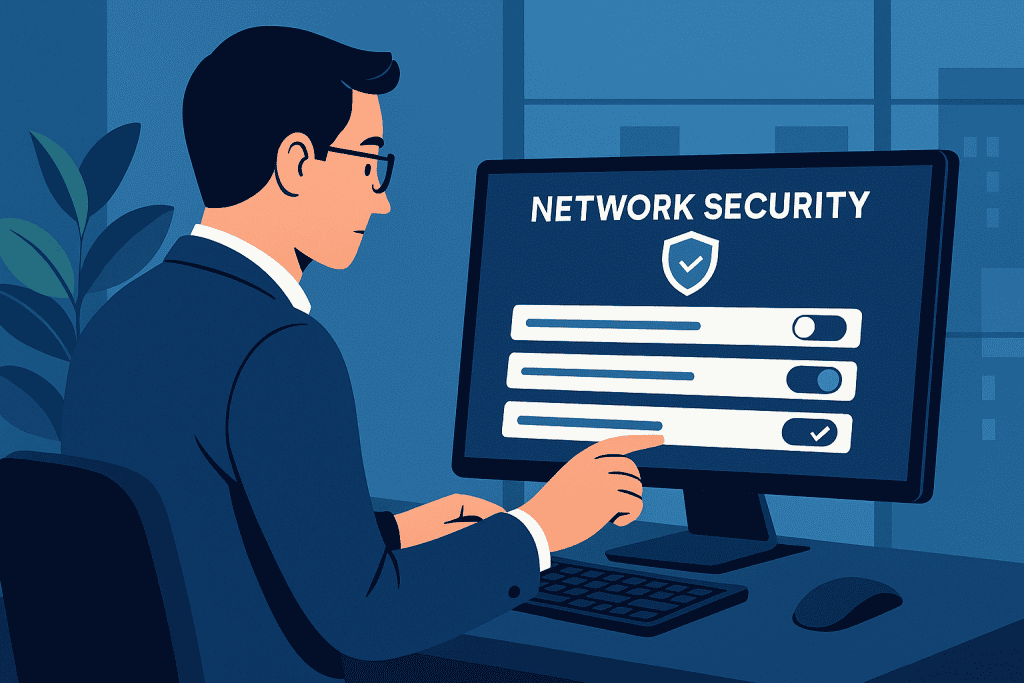
Cyber threats are becoming more advanced every day, making traditional firewalls less effective at protecting sensitive data and business networks. That’s where Check Point Next Generation Firewall (NGFW) comes in. As a leading cybersecurity solution, Check Point NGFW provides AI-powered threat prevention, deep packet inspection, and cloud security integration, ensuring that businesses stay protected against modern cyber risks.
But is Check Point Next Generation Firewall the right solution for your security needs? In this review, we will explore its features, performance, usability, and comparisons with competitors, helping you determine if this next-generation firewall is the best option for your cybersecurity strategy.
Overview of Next Generation Firewall
Before we dive into the technical details, let’s get a quick overview of what makes Check Point NGFW stand out.
Key Features
- Advanced Threat Prevention – Blocks cyber threats in real time, including zero-day exploits.
- Deep Packet Inspection (DPI) – Analyzes network traffic at a granular level to detect malicious activity.
- SSL Inspection – Ensures even encrypted traffic is inspected for hidden malware.
- Cloud Security Integration – Works seamlessly with cloud services like AWS, Azure, and Google Cloud.
- User and Application Control – Provides granular control over applications and user access.
- AI-Driven Security – Uses artificial intelligence to detect and neutralize evolving cyber threats.
- Automated Firewall Policy Management – Simplifies rule enforcement and minimizes configuration errors.
- Scalability – Suitable for both small businesses and large enterprises.
Next Generation Firewall Pros and Cons
Like any cybersecurity solution, Check Point NGFW comes with both advantages and disadvantages.
| Pros | Cons |
|---|---|
| Comprehensive threat prevention | Higher cost compared to competitors |
| AI-driven security automation | Steeper learning curve for beginners |
| Seamless cloud security integration | Licensing structure can be complex |
| High-performance threat detection | May require additional configurations for optimal use |
| Deep Packet and SSL Inspection | Some features require separate licensing fees |
In-Depth Analysis of Next Generation Firewall

Security and Threat Prevention
Check Point NGFW is built for next-generation cybersecurity. Its advanced threat prevention engine ensures that cybercriminals, hackers, and malicious software don’t stand a chance. The firewall utilizes deep packet inspection (DPI) to analyze data at a microscopic level, preventing unauthorized access and malware attacks.
One of the biggest challenges in modern cybersecurity is protecting against zero-day exploits—attacks that exploit software vulnerabilities before developers release a fix. Check Point NGFW uses AI-driven analysis to identify potential zero-day threats before they cause harm, making it a proactive security solution rather than a reactive one.
Ease of Use and Management
A firewall is only as good as its usability. Check Point’s SmartConsole provides a centralized security dashboard that allows administrators to manage firewall rules, monitor network activity, and respond to threats in real time.
However, for beginners, the learning curve can be steep. Unlike some competitors that offer more intuitive setups, Check Point’s advanced features require some level of expertise to fully utilize. That said, IT professionals will appreciate the level of control they have over security settings and automation options.
Cloud Security and Remote Access
With businesses increasingly relying on cloud services, a firewall must integrate seamlessly with cloud-based applications. Check Point NGFW provides native support for AWS, Microsoft Azure, and Google Cloud, making it ideal for organizations that operate in hybrid cloud environments.
Additionally, remote access security is a major concern for businesses with employees working from home. With built-in VPN support, Check Point ensures that remote workers connect securely to company resources without exposing sensitive data.
AI-Powered Security and Automation

One of the standout features of Check Point NGFW is its AI-powered threat detection. Unlike traditional firewalls that rely on static rules, Check Point’s AI continuously learns from network behavior and identifies evolving cyber threats in real time.
This AI-driven approach makes the firewall more adaptive and intelligent, reducing the risk of security breaches while minimizing false positives. Additionally, Check Point’s firewall policy automation simplifies security rule enforcement, reducing administrative overhead.
SSL Inspection and Deep Packet Analysis
Many modern cyber threats hide in encrypted traffic. Traditional firewalls struggle to inspect SSL-encrypted data, which creates a security gap. Check Point NGFW bridges this gap by offering SSL inspection, allowing it to analyze encrypted traffic without compromising performance.
Combined with deep packet inspection (DPI), this ensures that no malicious software can hide within encrypted communications, offering a higher level of protection than standard firewalls.
Check Point Next Generation Firewall vs Competitors
How does Check Point NGFW compare to its rivals? Let’s take a look at how it stacks up against Fortinet NGFW and Palo Alto NGFW.
| Feature | Check Point NGFW | Fortinet NGFW | Palo Alto NGFW |
|---|---|---|---|
| AI-Powered Security | Yes | No | Yes |
| Advanced Threat Prevention | Yes | Yes | Yes |
| Cloud Security Integration | Yes | Yes | Yes |
| SSL Inspection | Yes | Yes | Yes |
| Ease of Use | Moderate | High | High |
| Pricing | Higher | Mid-range | Higher |
While Fortinet offers a more budget-friendly solution, Check Point’s AI-driven security features and automation capabilities make it a top-tier choice for enterprises looking for long-term protection. Palo Alto, on the other hand, competes closely but remains similarly priced.
Conclusion
If you’re looking for cutting-edge AI-driven security, deep threat prevention, and seamless cloud integration, Check Point NGFW is a fantastic investment. It provides a proactive approach to cybersecurity, ensuring threats are stopped before they cause harm.
However, if you’re a small business with limited resources, the higher price tag and learning curve may make other solutions, like Fortinet NGFW, a better fit.
Ultimately, Check Point NGFW is best suited for medium to large enterprises that prioritize top-level security, automation, and AI-powered threat prevention.
Check Point Next Generation Firewall Rating
Check Point Next Generation Firewall has received positive feedback from cybersecurity professionals, with many praising its all-in-one security features and top-tier protection. According to a review highlighted by Check Point Software’s official Twitter account, customers rate it highly for its comprehensive threat prevention and reliability.
Given its strong security features, performance, and AI-driven automation, Check Point NGFW earns a 4.5 out of 5 rating. While it offers exceptional protection, the cost and complexity might be drawbacks for smaller organizations.
FAQ
How does Check Point Next Generation Firewall prevent cyber threats?
Check Point NGFW uses deep packet inspection, AI-driven threat prevention, and zero-day exploit protection to detect and stop cyber threats before they infiltrate the network. Its SSL inspection ensures encrypted traffic doesn’t hide malicious activity.
Is Check Point NGFW compatible with cloud services?
Yes, Check Point NGFW integrates seamlessly with AWS, Microsoft Azure, and other cloud environments. This ensures secure access to cloud applications while protecting sensitive business data from cyber threats.
How does Check Point NGFW compare to other firewalls?
Check Point NGFW stands out with AI-powered security, advanced threat prevention, and automation. While competitors like Fortinet and Palo Alto offer strong security features, Check Point’s zero-day protection and AI-driven approach give it an edge for enterprise security needs.
Resources
- ZenArmor. Check Point NGFW Alternatives.
- Tufin. Next Generation Firewall Review.
- Gartner. Check Point NGFW vs. FortiGate.
- YouTube. Check Point NGFW Overview Video.
- X. Check Point Software Post.
